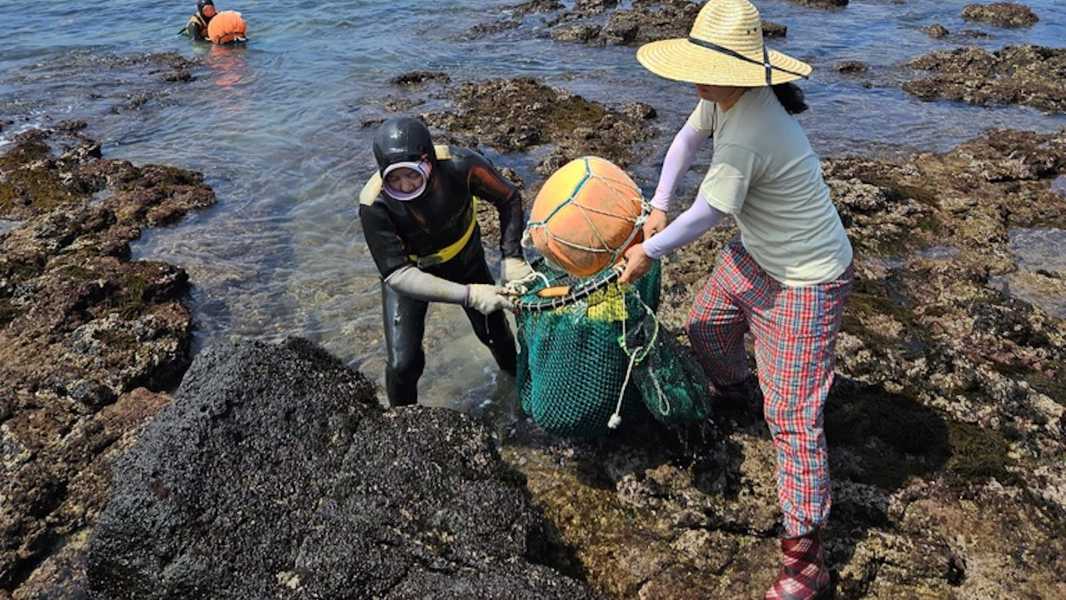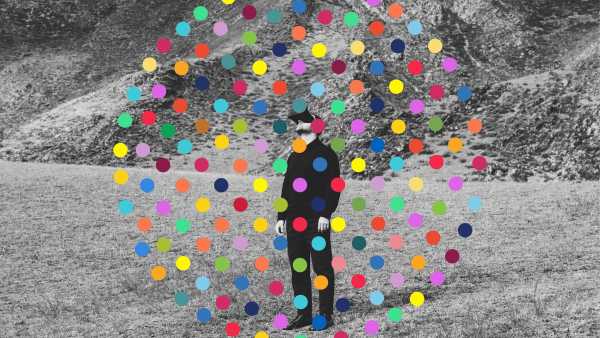
Female divers on Jeju Island have been freediving to harvest seafood for generations. (Photo: Melissa Ilardo)
A group of women on South Korea's largest island, Jeju, have a unique tradition of diving to depths of about 10 meters (about 33 feet) without any special equipment to provide food for themselves.
A new study now shows that these women have unique genes not found in mainland South Koreans. These genetic traits may be linked to their ability to tolerate cold water and lower blood pressure while diving, the scientists report in a study published in the journal Cell Reports on Friday (May 2).
Jeju Haenyeo, which translates as “women of the sea,” begin diving for seafood at around age 15, collecting abalone, sea urchins, and octopus. According to UNESCO, members of this group can spend up to seven hours a day collecting fish for about 90 days a year. They continue to do so until they are 80, even without a break during pregnancy.
“It’s astounding,” Melissa Ilardo, the study’s author and a geneticist at the University of Utah, told Live Science. “It’s not just that they’re still doing it as they get older, but the athleticism with which they do it is just incredible.”
Ilardo previously studied another group of people who free dive for seafood: the Bajau, or “sea nomads,” of Indonesia. The difference is that the tropical island of Indonesia has warm waters—about 26.7 degrees Celsius (80 degrees Fahrenheit)—while the waters off Jeju Island can drop below 12.8 degrees Celsius (55 degrees Fahrenheit). That’s cold enough to cause hypothermia.
However, according to Ilardo, Jeju Island haenyo “dive at any temperature,” descending to depths of up to 10 meters, typically for 30 seconds per dive, according to the article.
To study the secrets of this group's cold-water tolerance and endurance, Ilardo and her team compared the genetics of 30 Jeju Island haenyeo with those of 30 non-divers from Jeju Island and 31 women from mainland South Korea.
Both the haenyeo and non-divers from Jeju had identical genetic makeups that differed significantly from their mainland counterparts. The researchers speculated that this may be due to the islanders' close common ancestry.
Sourse: www.livescience.com





